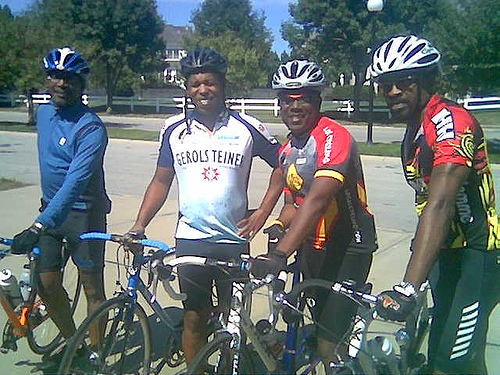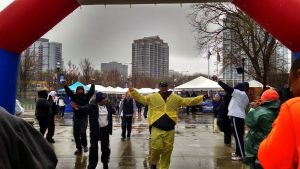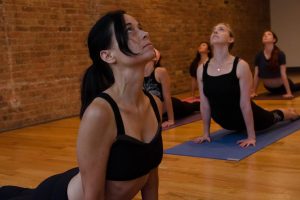Robert Hanserd says life as an African American man has not been easy.
“I would say there is a lot more violence. A lot of my friends, who I knew when I was growing up, I can name out of the 10 of my friends five who probably either aren’t here anymore — incarcerated or deceased,” he said.
Hanserd was one of a handful of black men interviewed about the problems that plague them: a higher rate of crime victimization and incarceration than the population at large. African American men also drop out of high school and leave college in larger numbers than other racial groups.
In the United States, African Americans make up 13.1 percent, according to the United States Census Bureau. One in every 15 is incarcerated; in comparison, one in every 106 white men will go to jail or prison, according to a report done by the Department of Justice.
Meanwhile, studies show that the high school dropout rate for young black men is higher than for whites and other races.
In September, The Schott Foundation for Public Education, released a report which tracked the graduation rates of black males from public schools since 2004. Only 52 percent of black males who entered ninth grade in the 2006-07 school year graduated in four years. That is compared with 78 percent of white, non-Latino males and 58 percent of Latino males.
Hanserd grew up in Rockford. “I grew up in a small little country town, and some of those guys just didn’t make it, and guys out here in the city have the same story,” Hanserd said.
Hanserd is a lecturer in history in the Department of Humanities, History, and Social Sciences at Columbia College Chicago. He earned his Ph.D. in history at Northern Illinois State University.
What seems to be the most detrimental aspect of the African-American community is the disproportionate number of single-parent homes. There were 8.6 million or 64 percent of black families living in a single-parent home, according to the Census Bureau in 2009. Many men leave the home, which means sons are unable to have a biological father as a role model.
Calvin King, 19, a student at Robert Morris University, said growing up without a father led him to believe that black men are mostly “dead beats.”My mother and grandma raised me,” he said. “My dad was never around, so I believe that most of them aren’t about anything.”
Other young black men, like King, have never seen or heard from their biological fathers. Black men also face high rates of incarceration, which are some reasons why many children do not have a relationship with them.
Black men are often viewed as gang members, violent and uncaring. Perceptions have changed societal views as well as some black men’s views of themselves, according to an article written by Alan Jenkins called “New Data Examines Perceptions of Black Males and Their Relationship to the Media.” The article talks about the hardships that black men are facing in today’s society and how they react to it. It goes in-depth with black men in the workplace, school, family, health, and the justice system.
“Research and experience show that expectations and biases on the part of potential employers, teachers, health care providers, police officers, and other stakeholders influence the life outcomes of millions of black males, just as their own self-esteem, identity, and sense of empowerment affect their ability to achieve under difficult circumstances,” said Jenkins in his article.
Some black professionals, including Hanserd, say their positions have surprised others, who often expect black men to hold unskilled jobs and be involved in criminal activity.
“One thing I really enjoy is being a black Ph.D., and I guess I don’t fit the part perhaps so it’s often times I can go into places or environments and no one expects or knows who I am or which way I am coming from, so I get some interesting responses from people in that regard,” Hanserd said. “They don’t know where to place me. I think that speaks to some of the flaws of how to perceive someone, which I certainly have been influenced and been affected by.”
Some African American men said they have not suffered from racial discrimination.
John Nicholson, 20, a student at Columbia College Chicago, said he has yet to feel the sting of racial hatred. “I am quite content with where I am in society,” he said.
Some of the oppression goes back early years of slavery and the civil rights movements. Black men were seen as inferior to Whites and overall less human, according to Jenkins’s article.
The mindset of being “lesser than” led to anger confusion, and violence. Some examples of this are the creation of the infamous gangs “Crips” and “Bloods.” Both groups were started as a civil rights movement to stand against the oppressions of blacks and bring the community together in the 1960’s according to the documentary, “Crips and Bloods: Made in America.” The documentary discusses the unique history of the two gangs and tells the stories of gang members.
“What troubles me the most is when we are out here killing each other and robbing each other when we should all be trying to work together and do something great,” King said.
Some African Americans said they experienced racial discrimination in schools.
Arron Hale, 19, said in high school he was mistreated and insulted by his teacher. “Our teacher one day said ‘You guys are all just some monkeys’. I remember asking her who was she talking about and she said ‘The ones who are acting like monkeys and look like them.’ It was crazy,” he said.
Hanserd said one way of opposing race discrimination is to try to work within the black community.
“Most of my career has been set around helping the black community; it came from my dad who was a minister who really instilled that in me,” he said.
Hanserd worked for the Department of Children and Family Services, (DCFS), an organization that specializes in the protection of children and strengthening families. There he developed a skill for grant writing to seek government funds and private dollars for non-profit organizations that focus on youth development and at-risk teens. “I’ve tried to convey all those things I’ve learned to the black community,” he said
“I’m proud of my identity, I am proud of those who came before me. I build on the backs of those legacies from family, parents, to community leaders, and national leaders. They are all a part of how I see myself as a black man. I feel good as a Black man in today’s society,” Hanserd said.

















Be First to Comment